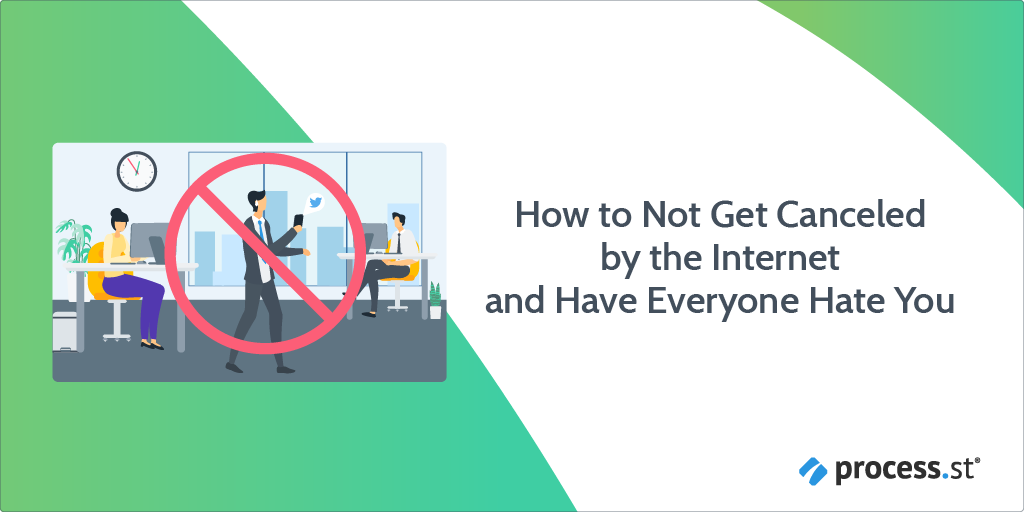
Once upon a time, the word “canceled” was only applicable to objects and things. Like the meeting you didn’t want to attend. The subscription to Netflix or any other subscription-based product. Your favorite TV series (Firefly, anyone?).
But since the mid-2010s, the word has evolved. It’s no longer objects and things that get canceled, but people and companies too.
Kanye? Canceled.
Scarlett Johansson? She’s canceled.
Bon Apetit? Canceled.
Pepsi? Completely, utterly canceled.
The specific reasons why these people and companies were canceled in the first place vary. But it’s ultimately their actions, statements, or sentiments that led them to be canceled by the internet-at-large.
To learn about their missteps — and ensure you don’t go down the same route — here’s this informative, insightful Process Street post where I’ll be covering:
- The definition of canceled and what it means to be canceled
- Cancel culture examples: Ellen, Kanye, and Pepsi
- How to stop cancelation from happening in the first place
Let’s get right into what is cancel culture and canceling.







